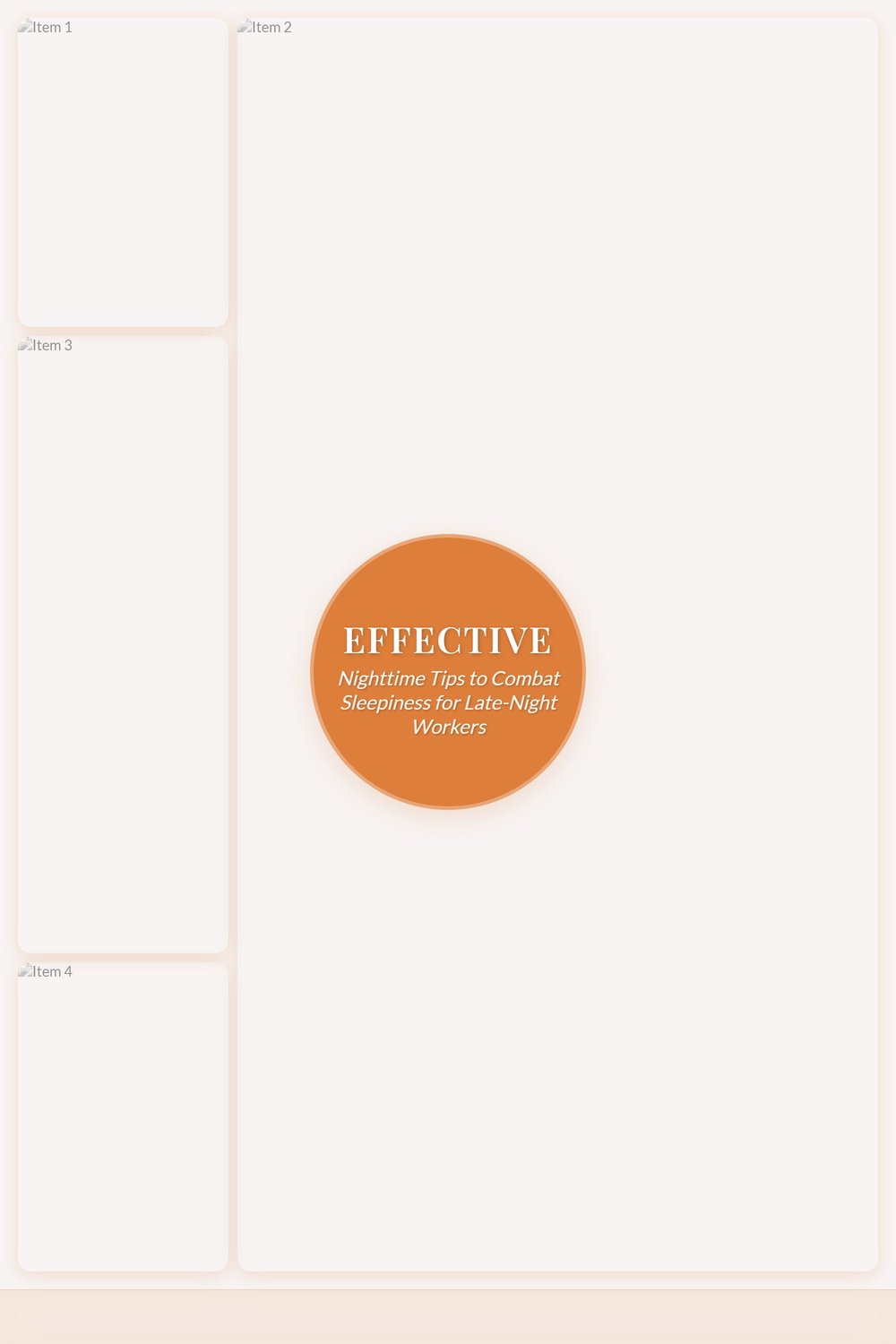Your cart is currently empty!

Effective Nighttime Tips to Combat Sleepiness for Late-Night Workers
Effective Nighttime Tips to Combat Sleepiness for Late-Night Workers
Late-night work schedules can wreak havoc on your natural sleep cycle, making it challenging to stay alert and productive. While staying awake at night isn’t ideal for your health, it sometimes becomes a necessity due to work demands. Here are some effective strategies to help you combat sleepiness and maintain focus during late-night shifts.
1. Top Strategies to Stay Awake at Night
Enjoy Tea or Coffee After Dinner
One of the most common ways to fend off sleepiness is by consuming tea or coffee post-dinner. Both beverages contain caffeine, which tricks your brain into staying awake by enhancing alertness and concentration. Ideally, you should drink your tea or coffee about 30 minutes after eating. However, avoid consuming these beverages too late, as they might keep you awake longer than desired. If you’re sensitive to caffeine, consider alternative methods to stay awake.

Hydrate to Instantly Boost Alertness
Your body is programmed to work during the day and rest at night. Working late can lead to dehydration, which induces fatigue and sleepiness. Drinking a glass of cold water can rejuvenate your senses and help you stay alert throughout your shift.
Use Bright White Light
Working under bright white light is an effective tactic to remain awake. This type of lighting stimulates your vision and enhances focus while protecting your eyes. Choose lights with the appropriate brightness to prevent eye strain or discomfort.

Take Short Breaks to Relax
During your work shift, take 5-10 minute breaks to relax. Walking around or performing light exercises can reduce mental stress and refresh your mind and body. This method is also helpful for those working in offices during the day.
Listen to Music for Mental Stimulation
Music can be a powerful ally in keeping you energized. Fast-paced tunes can invigorate your spirit and maintain a positive mood, even at night. Keep the volume low to avoid adverse effects on your hearing and sleep quality. Lower volumes help you stay focused without getting lost in the music.

Stimulate Your Body
If your body starts signaling fatigue, stimulate specific areas to fend off sleep. Here are some quick techniques:
- Gently pull or tap your earlobes.
- Stretch your arms and legs, and rotate your shoulders.
- Look at distant objects to relax your eyes.
- Practice deep breathing for overall relaxation.
Prioritize Daytime Rest
If you must work late into the night, ensure you get ample rest during the day. Quality daytime sleep can make staying up at night less daunting. Here are tips to enhance your daytime sleep:
- Practice yoga or meditation before sleeping to reduce stress and relax your mind.
- Avoid clock-watching and learn to breathe steadily.
- Wear soft, comfortable sleepwear.
- Choose a comfy mattress and regularly change your bedding.
- Use essential oils to promote relaxation.

Engage in Conversations
Chatting with friends or family can distract you from feeling sleepy. However, manage your conversation time to avoid affecting your work performance.
2. The Health Risks of Frequent Late-Night Work
Adequate sleep is crucial for health, as it’s when your body recharges after a long day. Despite tactics to stay awake, frequent late-night work poses significant health risks:
- Cognitive Decline: Sleep deprivation impairs neuron function, leading to memory loss and slower brain processes.
- Emotional Instability: Lack of sleep causes prolonged fatigue, resulting in irritability and mood swings.
- Weight Gain: Insufficient sleep can contribute to weight increase.
- Skin Damage: Sleep deprivation accelerates skin aging, causing wrinkles and acne.
Studies show that chronic sleep deprivation is linked to increased mortality and stroke risks, especially for those sleeping less than five hours per night. Balancing work demands with sufficient sleep is vital for overall well-being.
The methods shared above can help many people stay awake at night, but balancing work and rest is crucial. Where possible, complete tasks during the day and allow your body to rest according to its natural rhythm. Rest is essential for maintaining energy and productivity.
Leave a Reply